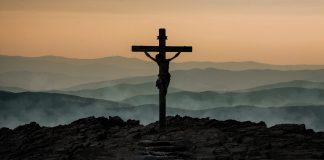All or nothing
By the middle of the 17th century, German Protestantism had long ceased to be a burning torch. Accepted by the nobility and the populace, it had become an ecclesiastical, secular, and politicised institution like all the others. In the night of alienation, God brought from the ashes the light of a new dawn.
The God of love, the God of justice
Centuries ago, the German theologian and philosopher Gottfried Wilhelm Leibniz used the term “theodicy”1 for the first time—“God’s justification”. By theodicy, Leibniz meant the ultimate reality of justification, once and for all, of God and all of His ways before the whole universe.
Don’t come back…
If we were to make an assessment of today's Christianity, which kind of sacrifice would we notice more frequently—the kind offered by Cain or by Abel? Cain offered a sacrifice from the fruits of the earth, and Abel from the sheep of his flock. While Abel’s sacrifice was pleasing to God, Cain’s sacrifice was rejected. From the very beginning, God has expressed His...
Is God with me?
"When I was little, I felt that God was with me, but now I feel so lonely! I wonder if God really was with me back then".
The portrait of religion, in scientific colours
More than a century ago, when the social sciences were just beginning to study the relationship between religion and health, elite scholars such as sociologist Émile Durkheim, Sigmund Freud, the father of psychoanalysis, and philosopher Friedrich Nietzsche repudiated religion consonantly, claiming that it had a toxic effect on individuals.
The forgotten sign
On May 19th, 1780, a strange phenomenon turned a sunny morning into an unexpected night. The event, known as the Dark Day, was seen as a sign of divine judgment by contemporaries and as a means of ridiculing apocalyptic expectations by sceptics.
“When doctors don’t know what to do, it’s time for alternative medicine.” True or false?
When it comes to cases where "doctors don't know what to do," the first thought that comes to mind is usually cancer. Conventional treatment, which can prolong life for a few years and sometimes just a few months, comes at a high price in the quality of life, and patients come to prefer the "natural" way: alternative medicine.
Ready for the return of Jesus
"Look, I am coming soon!" (Revelation 22:12) This is a promise whose fulfilment has been awaited by generations of believers who have pinned all their hopes on Jesus's return in glory. But what does "soon" mean? And what should we do to avoid being so preoccupied with the signs that we neglect other essential aspects of our preparation?
“Thanks for coming over!” | Ageing and social relationships
Our number of friends tends to decrease as we get older, but this trend, which has many negative effects, can be actively combated even when old age has already set in.
Too many or too greedy? An answer to global overpopulation
"The battle to feed all of humanity is over. In the 1970s and 1980s hundreds of millions of people will starve to death... It cannot be overemphasised, however, that no changes in behavior or technology can save us unless we can achieve control over the size of the human population." Despite seeming to come from a dystopian novel, these ideas belong to biologist...
Reformation 2.0
Generations of American adults who were marked by a strong commitment to Christianity and a practical devotion to their faith are ageing and disappearing. They are being "replaced" by generations of young people who are less likely to identify with the Christian religion or become committed Christians.
“The Case for Jesus: The Biblical and Historical Evidence for Christ” | Book review
"The Case for Jesus: The Biblical and Historical Evidence for Christ" challenges both the atheist and the agnostic, as well as the convinced or full-of-questions Christian, to look at the person of Jesus of Nazareth in a new light.
At the crossroad of our thoughts
Our daily habits and actions constitute our state of mind. However, few people know that we hold great power over our own thoughts. Developing this power could pave the way for happiness.
Indian soul night
One night, thousands of miles apart, two young women of the same age made a decision—a seemingly trivial one, but one that would seal the fate of one of them.
What (not) to say when apologising
"I was wrong. I'm sorry"—these words can have a magical effect on a struggling relationship. But if we fail to show empathy, the apology will sound fake or hurt the offended person even more.


























